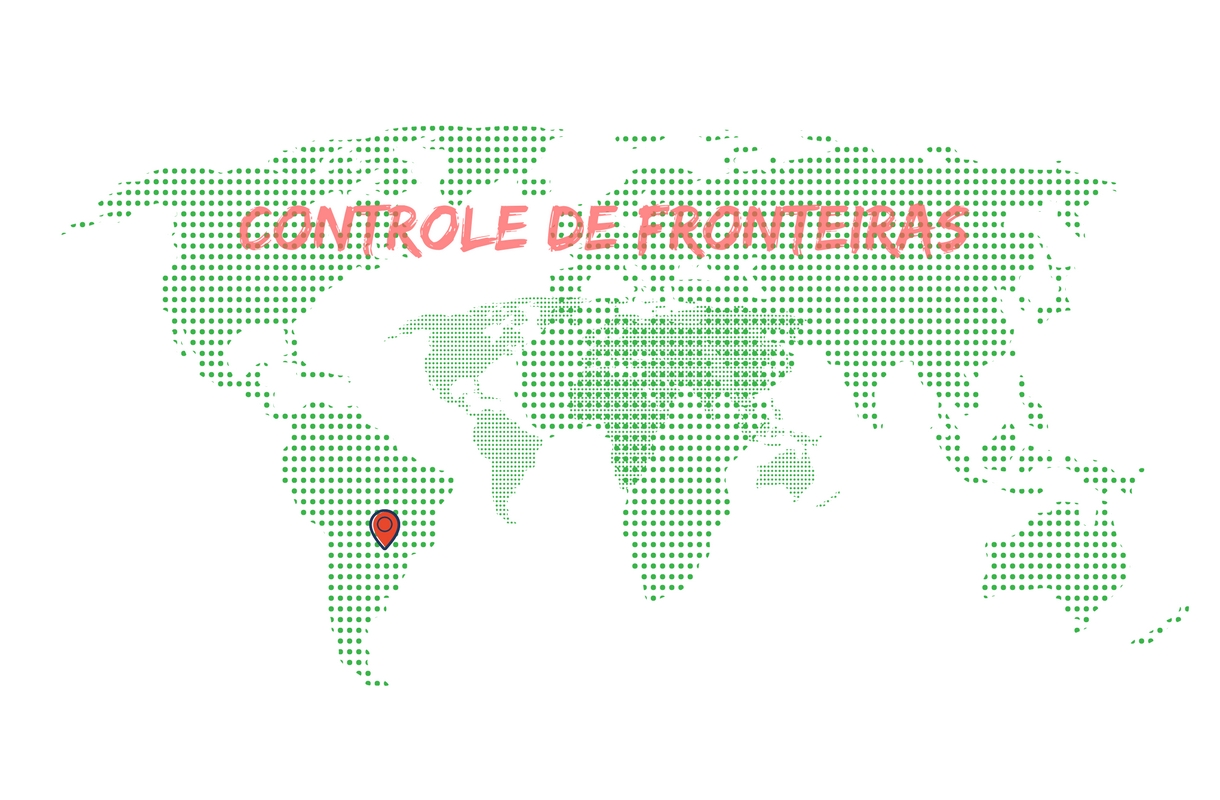Border control, a priority on the national agenda

By Geraldo Seixas - President of the National Union of Tax Analysts of the Federal Revenue of Brazil (Sindireceita)
In recent years, even in the midst of the serious global economic crisis, the flow of Brazilian international trade has grown by more than 70%, expanding the volume of imports and exports at ports, airports and border posts across the country. The number of vehicles and people crossing our borders has also grown.
The expansion of the flow of people, goods and vehicles entering and leaving the country through ports, airports and border points also poses other challenges and requires the improvement of the means of control carried out by the State. Because, it was not just the legal flow of goods that grew. In recent years, seizures of smuggling, embezzlement, drugs, weapons, ammunition and other goods that have entered the country illegally have also grown.
Even in the face of numerous difficulties such as the lack of servers in the units that carry out inspection and customs control, in 2015, according to the last Customs Balance released by the IRS, 3.144 surveillance and repression operations against smuggling and embezzlement were carried out, which resulted in the seizure over R $ 1,8 billion in goods. In 2015, there was an increase of 43,16%, compared to 2014, in the seizure of arms and ammunition. There were also, in the same year, Geraldo Seixas.jpgaprehensions of 2,4 tons of marijuana and 1,7 tons of cocaine, results that reinforce the role of the Federal Revenue as an institution linked to the fight against cross-border crimes and to confront security threats, materialized by crimes such as smuggling and drug trafficking.
Recent research shows that Brazil loses billions of reais every year due to under-invoicing of exports and over-invoicing of imports, with smuggling and embezzlement. O Competition Ethics Institute (Etco) and the National Forum Against Piracy and Illegality (FNCP) estimate that Brazil loses, with tax evasion and other losses caused by smuggling, R $ 100 billion a year. The report produced by Global Financial Integrity (GFI) estimates that from 2003 to 2012, Brazil lost US $ 217 billion, about US $ 21 billion a year, due to crimes of corruption, money laundering, but mainly through under-invoicing of exports and over-invoicing of imports.
The Institute for Economic and Social Development of Borders (Idesf) showed that the federal government stopped collecting R $ 10 billion in Tax on Industrialized Products (IPI) and Import Tax (II), between 2011 and 2014, due to smuggling . Idesf concluded that the collection of only these two taxes would increase by R $ 3 billion annually if Operation Agate - an integrated effort of the Armed Forces and more than forty inspection agencies, including the Federal Revenue Service - occurred without interruption during the entire period. year. According to the study, expenditure on the Operation is approximately R $ 1,1 million per day, or R $ 401,5 million per year.
It is not a question of expanding the collection, but of providing State institutions with the necessary capacity to act as a facilitator of international trade and, at the same time, expanding the means of inspection and control, strengthening the fight against cross-border crimes such as smuggling, diversion and drug trafficking, reducing the inflow of weapons that are used by organized crime. Actions, therefore, that are directly associated with the reduction of violence.
In this sense, we urgently need to bring the debate on border control to the national agenda. We can no longer be held hostage by dramatic events such as those that occurred in São Paulo, Rio de Janeiro, Espírito Santo, Rio Grande do Norte and more recently in Amazonas, when organized crime promoted attacks on police forces, started to control areas of large cities and to promote massacres in prisons as demonstrations of power. Now, the focus is on the lack of border control in the northern region, which has allowed criminal groups to take advantage of the weakness of enforcement to control drug trafficking.
As a way of contributing to this debate, over the past few years, the Tax Analysts of the Federal Revenue have promoted several actions. More intensely, since 2010, with the project “Fronteiras Abertas”, we have denounced the abandonment of borders. Now, to measure the challenge that is to control the flow of international trade that occurs through the country's ports, airports and dry borders, the Tax Analysts of the Federal Revenue of Brazil launch the “Frontier”. With this new tool, Tax Analysts present projections of the volume of cargo, people and vehicles entering and leaving the country, giving society an idea of quantity at the exact moment the consultation is made.
With the “Frontier” we also show the importance of customs inspection and control, and the challenges imposed by the growth in the flow of trade. We intend to broaden the debate on the importance of inspection and control actions at our borders and show the dimension of the challenge faced by the agencies that work in border control and foreign trade. Certainly, tackling violence will only be effective in the country when society and the authorities understand that border control should be seen as a priority on the national agenda.



